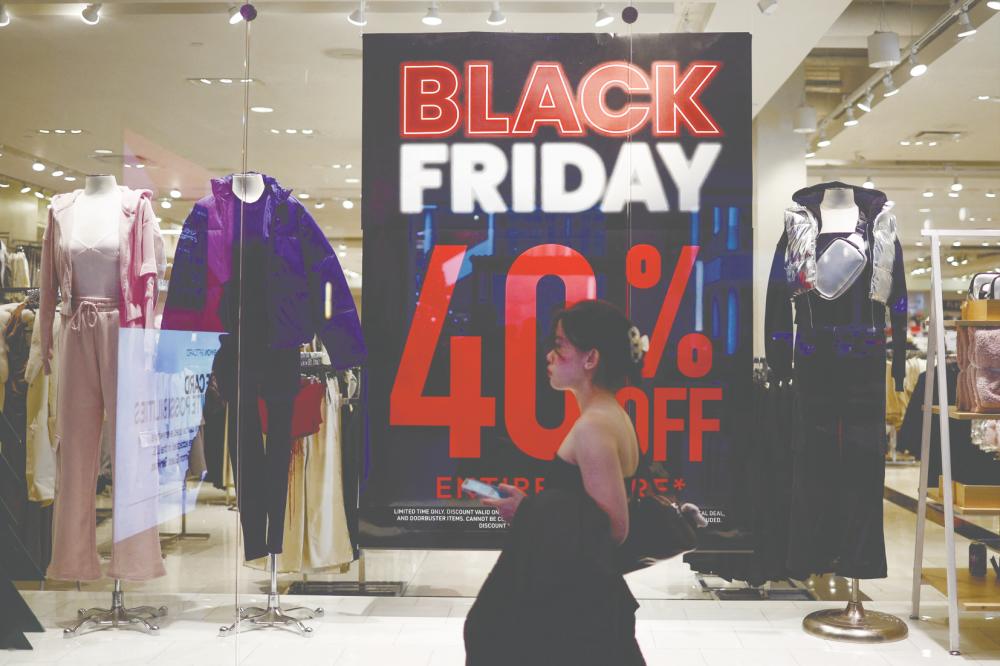IN a world obsessed with accumulation, where success is often measured by the excess we own, the idea of “enough” feels almost radical.
We live in an age where marketing strategies are designed to make us feel perpetually inadequate – there is always a better phone, trendier outfit, newer car. But what if we reframe our perception of scarcity? What if, instead of chasing more, we recognise the power of sufficiency?
This mindset shift is more than just personal fulfilment; it is a critical pivot towards sustainability, mental well-being and a more equitable world. The way we define “enough” has far-reaching consequences – not just for our individual lives but for the planet itself.
Scarcity is often manufactured rather than real. The luxury industry thrives on the illusion of exclusivity. Fast fashion operates on the premise that last season’s wardrobe is outdated. Tech giants roll out minor upgrades, making yesterday’s gadgets obsolete. The scarcity mindset tells us we do not have enough, so we must always want more.
Consider the case of Ronald Read, a janitor and gas station attendant from Vermont who lived modestly his entire life. Despite his humble earnings, he quietly amassed a US$8 million (RM35.52 million) fortune, which he donated to charity upon his death. Read never chased more – he lived within his means, embraced sufficiency, and yet, paradoxically, he had abundance. His story starkly contrasts with the high earners drowning in debt, chasing status symbols they can barely afford.
Our addiction to more is not just a psychological issue; it is an environmental crisis. The fashion industry alone is responsible for 10% of global carbon emissions and 20% of wastewater production.
Electronics contribute to 50 million tonnes of e-waste annually. Landfills overflow with items we once thought were essential but discarded when something shinier came along.
A thought-provoking example is Japan’s “mottainai” philosophy, which loosely translates to “don’t waste what is valuable”.
The Japanese culture, rooted in minimalism, places high importance on appreciating and utilising resources to their fullest potential. From kintsugi (the art of repairing broken pottery) to capsule wardrobes, Japan demonstrates that having less does not mean lacking – it means valuing what we have.
Beyond the financial and environmental implications, the scarcity mindset significantly impacts our mental health. Studies show that chronic materialism is linked to higher levels of anxiety, depression and decreased life satisfaction.
When we define our worth by what we own, happiness becomes an ever-moving target. Contrast this with the voluntary simplicity movement, which advocates intentional living – owning less but experiencing more.
In 2010, Joshua Becker, a suburban dad, stumbled upon minimalism when a neighbour pointed out how much time he spent managing his possessions instead of making memories with his family. This realisation led him to downsize, declutter and focus on what truly mattered. Today, his philosophy has inspired millions to redefine success beyond material wealth. Embracing sufficiency does not mean abandoning ambition or progress. It means redefining growth to be more sustainable and purpose-driven.
Some businesses are leading the way in shifting from profit maximisation to value creation. Take Patagonia, for instance. The outdoor apparel brand famously ran a campaign with the bold headline: “Don’t Buy This Jacket”. Instead of encouraging unnecessary consumption, the company urged customers to repair, reuse and recycle their gear. This counter-intuitive strategy not only reduced waste but deepened customer loyalty – proving that sustainability and profitability can go hand in hand.
Similarly, Ikea is transitioning towards a circular economy model, offering furniture take-back programmes and second-hand resale initiatives. These efforts challenge the traditional business model that thrives on endless consumption and promote longevity and responsible ownership.
Adopting the mindset of “enough” requires conscious effort but it is deeply rewarding. Here are some actionable ways to shift perspectives:
0 Practise gratitude – Studies show that regularly listing things we are grateful for can rewire the brain to focus on abundance rather than scarcity.
0 Adopt the “One In, One Out” rule – Before buying something new, let go of something you no longer use.
0 Invest in experiences over things – Research indicates that experiences bring more long-term happiness than material possessions.
0 Support sustainable brands – Choose businesses that prioritise ethical production and environmental responsibility.
0 Redefine success – Move away from material benchmarks and towards fulfilment, purpose and impact.
The concept of sufficiency is not about deprivation – it is about freedom. Freedom from the cycle of endless wanting, freedom from the burden of excess and freedom to live with intention. It is about recognising that having more does not equate to being more.
If society collectively shifts its mindset, the ripple effects will be profound – less waste, lower financial stress, improved well-being and a planet that can breathe a little easier.
The choice is ours: Do we continue running on the treadmill of never-ending consumption or do we step off and find contentment in enough? In the words of Lao Tzu: “He who knows he has enough is rich.” Maybe, the key to a better world is not acquiring more but realising we already have everything we need.
Dr Praveena Rajendra is a certified mental health and awareness practitioner specialising in narcissistic abuse recovery. Comments: letters@thesundaily.com









